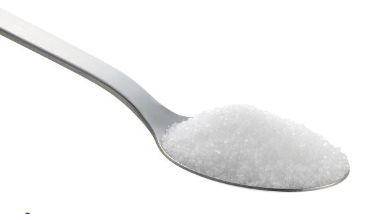
Many foods have hidden sugars in, so it can be difficult to know how much you’re consuming. However, various health problems can usually serve as an indicator that you’re consuming too much sugar including the following.
Tooth decay
Tooth decay is the most obvious sign excess sugar in the diet (or it could be insulin resistance/inflammation) – or that you’re not brushing your teeth thoroughly enough. Sugar provides the perfect breeding ground for enamel-eating bacteria, which leads to cavities. Rigorous brushing can stop sugar rotting the teeth – it could be worth taking a visit to your local dental office to get your teeth professionally cleaned to prevent any current cavities from getting worse. Of course, assessing your diet with a food journal or support of a dietitian can make an impact.
Spots/acne
Whilst acne can be a genetic condition, a number of other factors can also come into play such as personal cleanliness and diet. Sugar causes our bodies to produce more insulin, which in turn can cause unnecessary inflammation around the body such as acne on the skin. If you suffer from acne, it could be worth reducing your sugar and increasing your water. Unrelated to what we eat, stress can do funny things to our body, including blemishes. Make sure you are taking many deep breaths throughout the day and finding an outlet to unwind.
Excess weight
Sugar can lead to weight gain. Whilst sugar is low in calories, it is a carbohydrate – carbs have the biggest impact on blood sugar and insulin. When blood sugars are moving up and down, it will lead to weight gain and fluctuations in appetite. If you’re overweight and you eat lots of sugary foods, you may want to consider lowering your intake to help lose weight. The only time you may want to up your sugar intake is when doing aerobic exercise as sugar can provide useful energy to burn off – otherwise, you should keep it to a minimum.
Lack of energy
Relating to weight gain, sugar can cause a sense of an energy boost, but this is only short-term. The more sugar you feast on in one sitting, the bigger the comedown. If you feel tired all the time and you’re getting enough sleep at night, you may want to consider your sugar intake and evaluating how much caffeine you are running on.
High blood pressure
Salt is often blamed as the cause of high blood pressure (it actually only affects 20% of people), but sugar is the bigger villain. Sugar releases insulin, which in turn cause the blood pressure to rise. Constant high blood pressure can take a strain on the heart and arteries leading to potentially lethal problems such as strokes and heart attacks. If you’ve got high blood pressure, try lowering your sugar intake to see if this helps return your pressure to a normal level.



Leave A Comment
You must be logged in to post a comment.